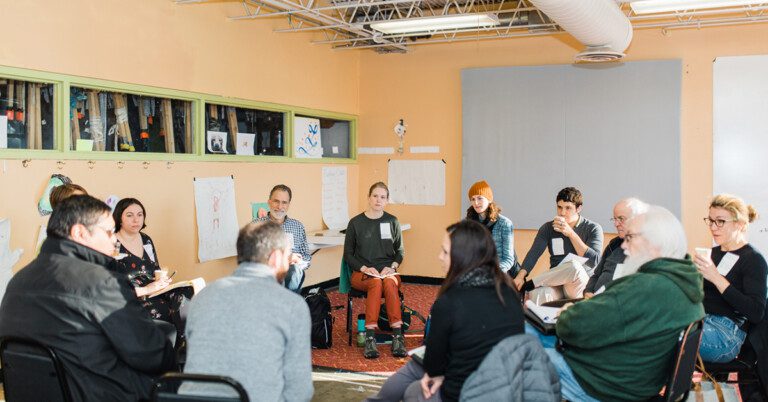Carl
At Seiche, we’ve done “slow” work for a long time. During the past two decades, we’ve focused on translating community insights into creative action, guiding organizations through the transformative work of systems change. We’ve learned truths about how to talk and – most importantly – how to listen.
Here are our eight lessons of Slow Communications:
Listen deeply. The Dalai Lama said, “When you talk, you are only repeating what you already know. But if you listen, you may learn something new.” Listen more than you speak. Hear what’s said, but also listen for the things that go unsaid. They can make all the difference.
Relationships over efficiency. Humans respond most to people and stories. While there’s often nothing wrong with a Facebook ad, make it your imperative to build trust and deepen relationships. That’s how we build power.
Get local. What works in one place doesn’t always work in another. Listen to and engage communities in learning, planning and implementation.
Go to the source. Make connections with and practice deep empathy for those directly affected by the issue at hand. In digital work, we often forget that we’re influencing the lives of real people.
Foster curiosity. Read. Play. Watch. Attend the ballet on Monday and improv theater on Tuesday (or whatever you’re interested in). Become a cultural omnivore. Our work is creative and creativity is stimulated by what we consume.
Listen to your intuition. We’re awash in data. Measure and analyze, but trust your intuition. If the data analysis doesn’t feel right, keep digging.
Share knowledge. Your grandma shared her best-ever borscht recipe, right? Organizations and philanthropy have a tendency to hoard knowledge for themselves. Don’t do it. Be generous and share learnings and insight from your work.
Take the long view. Way too often, communications work thrives on urgency alone. Remember, the battles worth winning are almost always long, hard and worthy of the fight. Systems change is a complex, nonlinear process – there is no box checking, prescribed solutions, or all-in strategies. Take the long view, bring a nuanced approach, and embrace the principled struggle and generative conflict.


